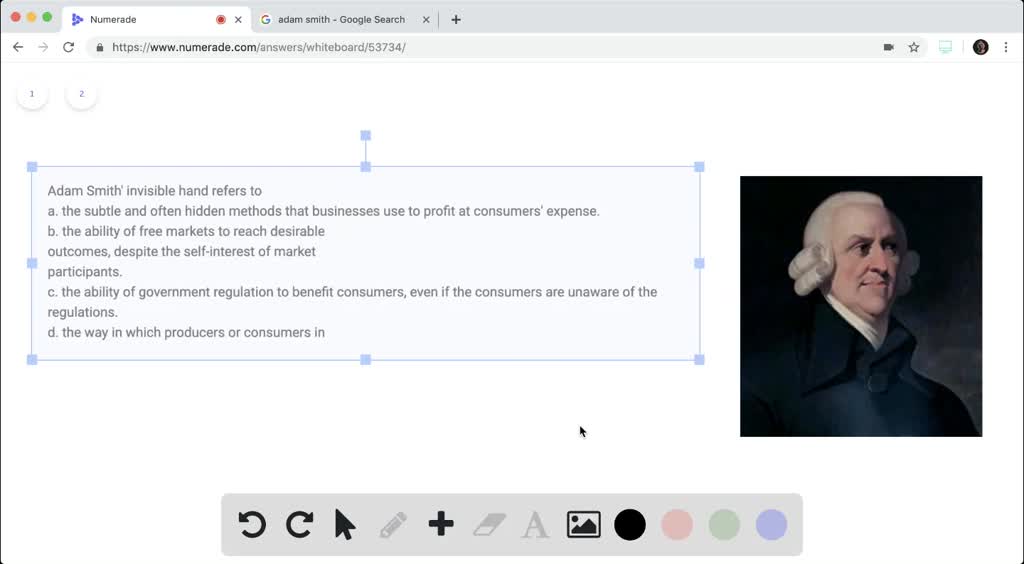

Adam Smith, Employment, and the Advantages to Society.Adam Smith argues that the Habeas Corpus Act is a great security against the tyranny of the king.Adam Smith notes that colonial governments might exercise relative freedom in the metropolis but impose tyranny in the distant provinces.Adam Smith on consumption as the only end and purpose of production.Adam Smith observes that the true costs of war remain hidden from the taxpayers.Adam Smith claims that exorbitant taxes imposed without consent constitute legitimate grounds for the people to resist their rulers.Adam Smith on the Butcher, the Brewer, and the Baker.Adam Smith, Patriotism, and the Welfare of Our Fellow Citizens.Adam Smith on who colleges and universities ACTUALLY benefit.Adam Smith on the greater productivity brought about by the division of labor and technological innovation.Adam Smith on how governments drain money from their citizens.Adam Smith on the ridiculousness of romantic love.Adam Smith on how “furious monopolists” will fight to the bitter end to keep their privileges.Adam Smith on compulsory attendance in the classroom.Adam Smith on social change and “the man of system”.Adam Smith on the need for “peace, easy taxes, and a tolerable administration of justice”.Adam Smith debunks that idea that when it comes to public debt “we owe it to ourselves”.
Adam smith invisible hand quote free#

The economic phrase for which he is most famous, the “invisible hand” of economic incentives, was only one of his many contributions to the modern-day teaching of economics. He is viewed as the founder of modern economic thought, and his work inspires economists to this day. While professor of logic, and later professor of moral philosophy at Glasgow University, he also had the opportunity to travel to France, where he met François Quesnay and the physiocrats he had friends in business and the government, and drew broadly on his observations of life as well as careful statistical work summarizing his findings in tabular form. Smith also studied the social forces giving rise to competition, trade, and markets. He was one of the leading figures in the Scottish Enlightenment.

He wrote in a wide range of disciplines: moral philosophy, jurisprudence, rhetoric and literature, and the history of science. Adam Smith (1723-1790) is commonly regarded as the first modern economist with the publication in 1776 of The Wealth of Nations.


 0 kommentar(er)
0 kommentar(er)
